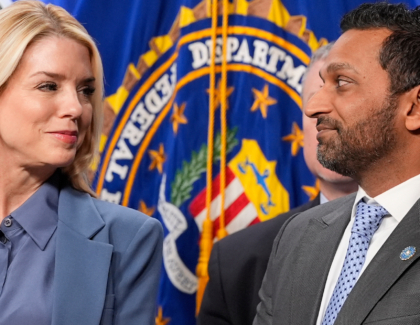Sign up for the daily CJR newsletter.
Since the internet hasn’t yet reached its breaking point with superlative-laden lists, CJR is taking its yearly roundup of journalistic triumphs and blunders to a monthly schedule. This is the first attempt at a regular digital continuation of our long-running print feature, “Darts and Laurels,” and we’d like to include your suggestions and feedback going forward. I have the privilege—nay, the pleasure—of writing this monthly retrospective, so please send your thoughts, and any hate mail, to me.
The Best Journalism of June
The Washington Post spotlights Donald Trump’s charitable giving, or lack thereof
The presumptive GOP nominee is rich. Really rich. So rich he claims to have donated many millions to charity. Trump’s tax returns—the most beautiful tax returns—would prove such personal giving. But the real estate magnate and reality TV star doesn’t want the public to see them. Trump’s vagueness about his defining characteristic makes journalists’ attempts to peek behind the gilded curtain especially valuable. Washington Post reporter David Fahrenthold’s efforts to track down how much Trump actually gave to charity in recent years cast doubt on the supposed billionaire’s boasts.
“What has set Trump apart from other wealthy philanthropists is not how much he gives,” Fahrenthold writes, “it is how often he promises that he is going to give.” Just one of nearly 200 organizations Fahrenthold has contacted thus far confirmed any donation from Trump, whose campaign has remained silent on the matter. Fahrenthold has continued his valiant legwork to prove the candidate is telling the truth—you can follow along on Twitter—but it’s proven a Herculean task.
Palo Alto Online, BuzzFeed, and CNN give the Stanford rape victim a voice
After a shockingly lenient sentencing for convicted rapist Brock Turner, no journalist could have fully captured the outcome’s psychological cost for the victim. That’s why the decision by these outlets to publish all or most of Emily Doe’s in-court statement proved so powerful. Her 7,000-word letter shamed Turner like none of the other myriad pieces on the episode could have. What’s more, it shamed the culture—our culture—that allowed him to escape harsher punishment. BuzzFeed projected Doe’s words to millions, while CNN host Ashleigh Banfield’s on-air reading of much of the statement provided a sober respite from the amoral political minutiae that dominates much of cable news.
The Tulsa World puts state crime numbers into context
The Oklahoma paper’s report on a statewide spike in homicides last year wasn’t sexy—and that’s the point. Oklahoma saw a 35 percent increase in such incidents since 2014. “But when comparing the figures to the previous five years,” Stacy Ryburn writes, “remembering that the state saw two mass murders in 2015 and considering that 2014 had the lowest number of murders in a decade—241 homicides may not indicate a dramatic rising trend in violent crime.” It’s a shockingly measured perspective as many news outlets nationwide have cover fleeting rises in crime as part of a crime wave or post-Ferguson change in police tactics. Crime, and particularly violent crime, has declined at miraculous rates over the past two decades. Other organizations would do well to follow the Tulsa World’s lead in focusing on the trend lines over the headlines.
C-SPAN finds a way to broadcast Democrats’ gun-control sit-in
The typically dry cable channel took a rare step into the limelight when it broadcast Periscope and Facebook Live feeds from the House floor as Democrats railed against GOP obstructionism on gun control. It made for a stark reminder of the public service C-SPAN provides on a daily basis. Scroll through C-SPAN.org, and you’ll find videos of lawmaker speeches, congressional committee hearings, and Pentagon briefings, among countless other offerings. Such feeds are an invaluable resource to both reporters and the public; no other outlet can match this largely unedited coverage of the day-to-day tedium of government. If nothing else, C-SPAN’s workaround in broadcasting Democrats’ sit-in underlined its not-so-glamorous but ever-so-important duty to keep the cameras rolling in Washington.
The Worst Journalism of June
Pro-Brexit British newspapers
There is nothing inherently wrong with news organizations taking an editorial stance on pressing issues. The Economist, the unofficial journal of globalization, made plain its support for UK membership in the European Union with numerous fact-based articles. But therein lies the catch. Many of the newspapers that supported the Leave campaign circulated its top talking points with little scrutiny in both news coverage and editorials. Among the falsehoods or half-truths: that the UK sends 350 million pounds a week to Brussels; that the country would be overrun by violent immigrants should it remain; and that the UK would retain access to the EU’s single market despite leaving.
Euroskepticism isn’t new among some of the top-circulation British newspapers, particularly the tabloids. But UK citizens must now come to grips with the real-life effects of the alternate reality their media helped create.
CNN hires Trump’s former campaign manager
Look past the fact that the Trump campaign’s door hadn’t yet hit Corey Lewandowski on his way out. Look past Lewandowski’s non-disclosure agreement that prevents him from sharing any confidential or disparaging information about Trump if he feels the unlikely urge to do so. Look past the reports of Lewandowski’s hostility toward women, including the grabbing of a female reporter in a confirmed incident he lied about. Look past his campaign’s continuous animosity toward journalists. Look past all those factors to give CNN the benefit of the doubt with this hire—perhaps Lewandowski does have some special insight—and the rationale still doesn’t hold after the commentator’s first few appearances.
Take Lewandowski’s analysis of a Trump trade speech Tuesday: “This is Mr. Trump’s best speech of the presidential cycle. This is right on message, his core message of putting Americans first. This is about bringing jobs back to America.” Such banal shilling is by no means new to cable shows, and neither is the employment of political hacks. And to be fair, CNN interviewers have so far done a good job of pressing Lewandowski on his Trumpa fides. The question is why the network would reward all of Lewandowski’s reprehensible traits—particularly his former campaign’s utter disregard for the truth—in return for broken-record cable commentary. No need to speculate on why Americans’ trust in media remains at an all-time low.
Has America ever needed a media defender more than now? Help us by joining CJR today.







